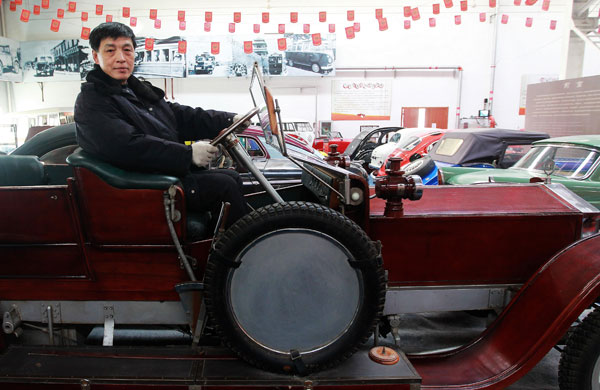Quirky museums tell the capital's history
By louise Watt Associated Press ( China Daily ) Updated: 2016-04-09 07:26:47
Founders see them as helping preserve cultural legacy.
Stuffed into a tiny room off an alleyway are items that Wang Jinming readily admits were put out with the garbage: Paper string, a needle holder, a metal pancake maker built for thrusting into a fire.
"These objects all look quite old and shabby," he says. "But they record real history."
Wang's Beijing Old Items Exhibition in the heart of old Beijing is one of dozens of private museums that dot the capital's backstreets and its suburbs. Their collections feature the grand and mundane - from items salvaged from the garbage to a limousine in which Chairman Mao Zedong once rode.
Entering these private museums is to peel off a largely forgotten layer of Beijing's recent history.
The capital's private museums are born from their founders' hobbies and obsessions, along with a sense of duty to keep alive a little bit of history others might dismiss as trivial.
"If you throw it on the street, people would say 'What's this?' and maybe think it's useless and throw it away," says Wang, gesturing around the room packed with hundreds of household items and street objects dating from the 1900s to the 1970s. "But we think it's culture."
Wang delights in telling visitors to guess what the objects in their hands are. They might include a popsicle holder used by street vendors or a bucket-shaped iron heated by charcoal. All form part of the collection that Wang and two co-founders began in the 1980s after asking foreign visitors why they were so interested in buying old everyday items.
"They said, 'To collect.' Now if you go to someone's home you probably can't find such things," Wang says.
Picking up a doughnut-shaped metal bell, Wang explains that before Beijing had many hospitals, itinerant doctors used to roam the streets. "When you heard this sound, the doctor was walking in the street, available, ringing the bell," he says.
Liu Chen, 27, first visited the museum after reading about it on social media and has returned several times with friends.
|
|
|
|
|
|
|
|


























 Raymond Zhou:
Raymond Zhou: Pauline D Loh:
Pauline D Loh: Hot Pot
Hot Pot Eco China
Eco China China Dream
China Dream China Face
China Face






